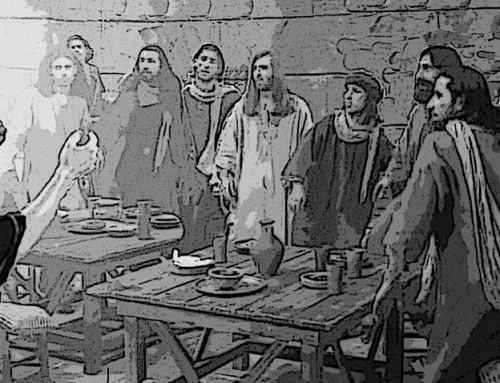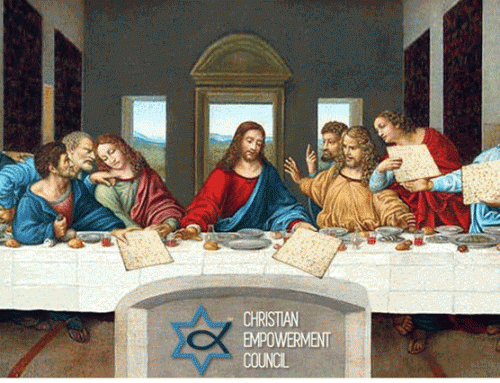Jewish farmers in Israel are forced to have more faith in God than teachers, bankers, doctors, housewives, lawyers!
Can you imagine being told not to work for an entire year?
Admittedly, deadbeats love the idea. But upstanding people who know that God commands honest work for a living are shocked by the Lord’s command to let the land lie fallow every seventh year.
Amazingly, no farmer has ever starved by observing God’s laws of the sabbatical year.
We must learn from the Israeli farmers! We must learn to have more faith in God!
I love faith-building miracle stories about salvations, healings, divine interventions, financial provisions and events that defy the laws of nature, such as miracles involving weather, people being raised from the dead and miracle, bumper crops.
Many Christians are familiar with the teachings of men such as the late Charles Capps, who was an Arkansas farmer and Bible teacher. As a farmer, Capps taught from his experience that faith-filled words produce faith. Fear-filled words produce more fear. The heart (human spirit) responds to the words (seeds) planted in the heart.

Jerusalem Channel’s Christine Darg met ‘Faith Like Potatoes’ Man of God Angus Buchan in Jerusalem at the ICEJ’s Feast of Tabernacles
Jesus in His own words reveals how the Kingdom of God works: “The sower soweth the word…So is the kingdom of God, as if a man should cast seed into the ground; And should sleep, and rise night and day, and the seed should spring and grow up, he knoweth not how. For the earth bringeth forth fruit of herself; first the blade, then the ear, after that the full corn in the ear. But when the fruit is brought forth, immediately he putteth in the sickle, because the harvest is come.” (Mark 4:14, 26-29)
 Many Christians are also familiar with the farming testimony of Angus Buchan who was originally a Zambian maize and cattle farmer of Scottish descent. Angus was forced to sell everything and move to KwaZulu-Natal, South Africa. He was a hot-tempered, stressed out man. But after returning to church and becoming born again, supernatural occurrences began to happen as Angus learned to believe God’s promises and to pray in faith. Experts had warned all the farmers not to plant potatoes that season because of no irrigation. The land was going through an unprecedented drought, so planting potatoes would be a massive risk. Believing he’d heard from God, Angus planted potatoes in the dry dust. When harvest time came, lo and behold, there was a crop of giant potatoes. His story is told in the book and film, “Faith Like Potatoes.”
Many Christians are also familiar with the farming testimony of Angus Buchan who was originally a Zambian maize and cattle farmer of Scottish descent. Angus was forced to sell everything and move to KwaZulu-Natal, South Africa. He was a hot-tempered, stressed out man. But after returning to church and becoming born again, supernatural occurrences began to happen as Angus learned to believe God’s promises and to pray in faith. Experts had warned all the farmers not to plant potatoes that season because of no irrigation. The land was going through an unprecedented drought, so planting potatoes would be a massive risk. Believing he’d heard from God, Angus planted potatoes in the dry dust. When harvest time came, lo and behold, there was a crop of giant potatoes. His story is told in the book and film, “Faith Like Potatoes.”
Angus’ story reminds me of Isaac in the Bible who planted seed during a drought and reaped 100-fold because God favoured him. Genesis 26: 12 teaches us, “Isaac planted crops in that land and the same year reaped a hundredfold, because the LORD blessed him.”
However, many disciples of Jesus/Yeshua are not familiar with miracles among faith-observing Israeli farmers. Lately, those of us who follow what’s happening in Israel are continually hearing the Hebrew word from the Bible called shmita, which means a sabbbatical year.
The Hebrew calendar has just turned to the year 5775, and it is a shmita year…
Can a modern nation disregard their fields for an entire year?
Observing shmita is a test of faith and an opportunity to reaffirm one’s commitment to trust the God of Israel totally.
Normally, we define a sabbatical as a season when professionals take time out for R&R and to learn new things. But in the Holy Land, the sabbatical year means the Land itself must take a rest and lie fallow.
The schmita law is described in Exodus 23: 10-11: “You may plant your land for six years and gather its crops. But during the seventh year, you must leave it alone and withdraw from it. The needy among you will then be able to eat just as you do, and whatever is left over can be eaten by wild animals. This also applies to your vineyard and your olive grove.”
In Leviticus 25:20-22, Israelis are promised an abundant harvest if they adhere to these laws.
Giving the Land of Israel a sabbatical year is a test of faith and an opportunity to reaffirm commitment to God. As my Facebook friend Rabbi Lazer Brody wrote recently: “Trust in Hashem [God], or bitachon as we say in Hebrew, is especially important in observing the Shemitta year. If a farmer asks how he can possibly let his field lie fallow and make a living at the same time, the Torah promises him a bumper crop in the sixth, or pre-Shemitta year. Furthermore, Hashem gives an opportunity to every farmer in the Land of Israel to take a rest from an entire year of back-breaking work in the field and to taste the double sweetness of learning Torah all day long and eating out of Hashem’s outstretched hand. Sure, this requires trust in Hashem, but many in the Land of Israel – as the Shemitta-encouragement committees can attest to – have succeeded.”
This unique commandment can only be fulfilled every seven years, but it provides a practical way to demonstrate faith in the Almighty and to reap benefits. Farmers are some of the most religious people in the world because they have to bury and invest their seed in the soil, trusting totally in the Almighty for a positive outcome.
Before we learn to trust God flat-out, we often engineer our circumstances rather than fully obeying God. This is our human nature and we must all learn more and more principles of faith. Israelis have tried getting around the shmita through legalities of land ownership devised by Israel’s first chief rabbi. And, ingeniously, some Israeli farmers invented unique methods of growing certain crops without planting them directly into the Israel’s soil. One such method is produce grown hydroponically, in water. Another method is to grow produce in pots. These agricultural products are widely accepted as permissible during the shmita cycle.
In a profound message of the agricultural laws of the Torah, Rabbi Ari Enkin wrote:
“As one can imagine, this mitzvah [commandment] has a major impact on the entire country, from the farmers to the consumers. How are we to eat vegetables if we cannot work the land?
“Something strange pops up right in the middle of the Torah’s narrative on the laws of shmita. Seemingly out of nowhere, the Torah interjects with the following mitzvah: ‘When you sell an item to your friend or buy from the hand of your friend, one should not cheat his brother.’
So how is cheating connected to shmita?
We say “amen” to the way Rabbi Ari Enkin, Rabbinic Director of United with Israel, explains it:
“When one has no income, or worse, if one thinks he does not have enough income, he or she might be tempted to cheat or steal. It goes without saying that stolen money is not money that God wanted you to have. So too, one cannot ‘outsmart’ God and ‘force’ Him to give more than He had allotted to you. If a person steals a thousand dollars, he will not get very far with it. I can assure you that somehow he will be faced with an unexpected one-thousand-dollar expense, be it a speeding ticket, a leak in the roof or worse.
“A person who believes that God is truly in control has no reason to cheat his fellow in order to make an undeserved profit.”
The Talmud says the reason for observing shmita is to realize that the land belongs to God. To read more about what the Hebrew sages taught concerning shmita, click here.
‘Israel – trust in God! He is your help and your shield.’ (Psalms 115: 9)
‘And without faith it is impossible to please God, because anyone who comes to him must believe that he exists and that he rewards those who earnestly seek him.’ (Hebrews 11: 6)








Leave A Comment